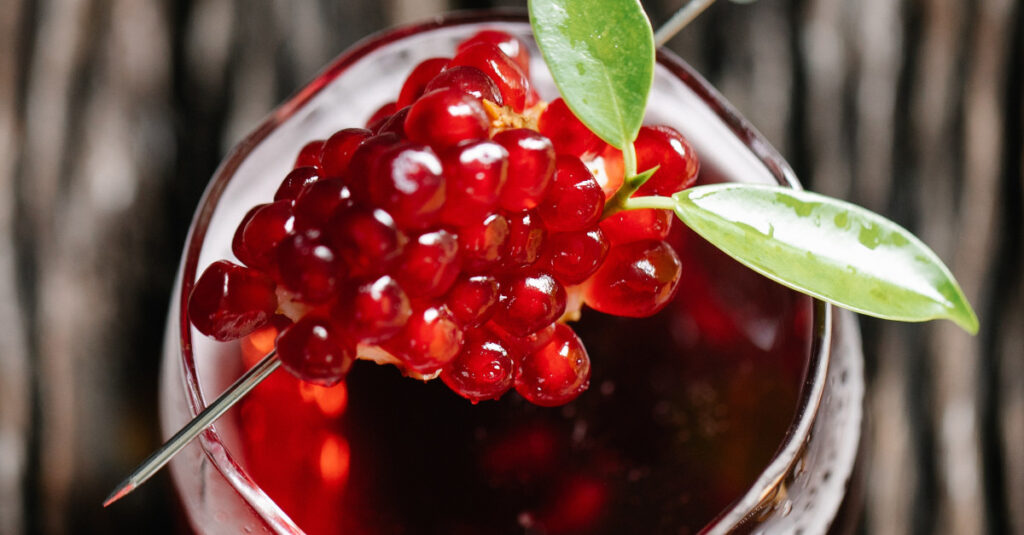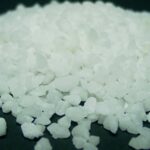Pomegranate juice and hypertension, what is the link? Pomegranate juice is a delicious and healthy drink that has been used for centuries in traditional medicine. Recent research has shown that pomegranate juice has numerous health benefits. One is its ability to lower blood pressure.
Mechanisms of action
One way in which pomegranate juice may lower blood pressure is by improving endothelial function. The endothelium is the lining of the blood vessels, and its proper function is crucial for maintaining normal blood pressure. Pomegranate juice is rich in antioxidants, particularly polyphenols, which have been shown to improve endothelial function. A study published in the journal “Clinical Nutrition” found that drinking pomegranate juice for a year improved endothelial function. It has also reduced systolic blood pressure in patients with hypertension.
Pomegranate juice may also lower blood pressure by inhibiting the activity of angiotensin-converting enzyme (ACE). ACE is an enzyme that plays a role in regulating blood pressure by constricting blood vessels. Studies have shown that pomegranate juice can inhibit ACE activity, which can help to lower blood pressure.
There is also evidence that pomegranate juice may have a direct effect on the smooth muscle cells of the blood vessels. It causes them to relax and dilate. This can help to lower blood pressure. A study published in the journal “Phytotherapy Research” found that drinking pomegranate juice for a period of four weeks resulted in a significant reduction in systolic blood pressure in patients with hypertension.
Fresh pomegranate juice vs juice from cartons
When making pomegranate juice, it is best to use fresh pomegranates. To make the juice, you can use a juicer or a blender. You can also blend the pomegranate seeds and strain the juice through a fine mesh strainer. It is best to consume the juice within a few days to get the maximum benefits from it. You can purchase 100% pure pomegranate juice from a store. Make sure to read the label to ensure that it does not contain added sugars or artificial sweeteners.
It is best to consume fresh fruits or freshly squeezed juice. Pomegranate fruits contain high levels of antioxidants, dietary fibers, and other essential nutrients that are beneficial for hypertension. Fresh juice is also a good option. Juice from cartons may be made from concentrate. The concentrate may contain added sugars or artificial sweeteners, which can contribute to the development of hypertension.
Dosage and daily intake of pomegranate juice
If you have hypertension, it is important to speak with your healthcare provider about how much pomegranate juice is safe for you to drink. As a general guideline, it is recommended to consume no more than 8 ounces (240 ml) of pomegranate juice per day. It is best to consume it in the morning and avoid consuming it before bedtime.
It is generally recommended to avoid drinking pomegranate juice at bedtime because it can interfere with sleep. Pomegranate juice contains naturally occurring caffeine and theobromine, which are stimulants that can increase energy levels and make it harder to fall asleep. Additionally, pomegranate juice is acidic and can cause stomach upset or acid reflux when consumed in large amounts close to bedtime.
Also, consuming pomegranate juice at bedtime may cause an increase in blood pressure which could be dangerous for hypertension patients, as it could lead to an interruption of the nocturnal blood pressure dip which is a normal physiological process that occurs during the night.
Possible side effects
Pomegranate juice is generally considered safe for most people when consumed in moderate amounts. However, excessive consumption of pomegranate juice can lead to certain side effects. Some of the most common side effects include:
- Diarrhea: Pomegranate juice contains high levels of fiber, which can cause diarrhea when consumed in large amounts.
- Stomach upset: Pomegranate juice is acidic and can cause stomach upset or acid reflux when consumed in large amounts.
- Allergic reactions: Some people may be allergic to pomegranate juice and may experience symptoms such as hives, itching, and difficulty breathing.
- Drug interactions: Pomegranate juice may interact with certain medications, such as blood thinners, and may increase the risk of bleeding. It’s important to speak with your healthcare provider if you are taking any medications and are considering adding pomegranate juice to your diet.
- Caffeine and theobromine: Pomegranate juice contains naturally occurring caffeine and theobromine, which are stimulants that can increase energy levels and make it harder to fall asleep.
- Interference with blood pressure medication: Pomegranate juice may interfere with blood pressure medication, so it is important to consult with your doctor before drinking it if you are on blood pressure medication.
These side effects are typically associated with excessive consumption of pomegranate juice.
Further reading
- “Effects of pomegranate juice on blood pressure: A systematic review and meta-analysis of randomized controlled trials“, Pharmacological Research, Volume 115, January 2017, Pages 149-161
- “Potent health effects of pomegranate“, Advanced Biomedical Research, 2014
- “Effect of pomegranate extract on blood pressure and anthropometry in adults: a double-blind placebo-controlled randomised clinical trial“, Cambridge University Press, 2017
- “Pomegranate juice consumption for 3 years by patients with carotid artery stenosis reduces common carotid intima-media thickness, blood pressure and LDL oxidation.” Clinical Nutrition, 2004.
- “Pomegranate juice supplementation to hypertensive patients: a double-blind, placebo-controlled, cross-over trial.” Journal of Hypertension, 2010.
- “Pomegranate juice prevents macrophage-derived foam cell formation and suppresses development of atherosclerosis in LDL receptor-deficient mice.” Atherosclerosis, 2008.
- “Pomegranate juice improves endothelial function and reduces the oxidative stress in patients with cardiovascular risk factors.” Clinical Nutrition, 2004.






